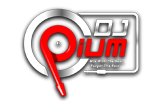Researchers recover recording of first computer music

-
-
-
-
Digg
-
Gmail
-
Myspace
There’s something remarkable about hearing the first, sweet and slightly tortured atmospheres conducted altogether through a computer, specially when you consider that they were generated 65 years ago.
Researchers at the University of Canterbury lately figured out how to restore a two-minute BBC recording of the first, known computer music, generated through a programme designed was established by Alan Turing.
Somewhere between 1948 and 1951, the famed World War II code-breaker, programmed a massive computer( the Mark I and then its successor, the Mark II) to make a clang basically a click that it could repeat quickly enough to create a single feeling. Varying the rules of clicks developed different notes. The make is something akin to a somewhat shattered violin or fog-horn. Turing was no musician, though, so computer scientist Christopher Strachey( then a student ), whom Turing let work with the massive computer on his off hours, astonished everyone and programmed it to play-act, amongst other songs, God Save the Queen .
A portion of an early original computer concert at the BBC in 1951 was captured, albeit poorly, on something akin to a 12 -inch vinyl record.
Professor Jake Copeland and New Zealand composer Jason Long acquired the recording( personal computers is long-gone ), but were disappointed to find that it had been poorly registered. “The frequencies in the recording were not accurate: the recording devoted at best only a rough notion to seeing how the computer sounded, ” wrote health researchers in a blog post on their work.
The primary shortcoming in the 1951 recording seemed to be speed.
“We saw there was enough information in Turing’s wonderfully pithy Programmers’ Handbook to enable us to calculate all the audible frequencies that the Mark II could render, ” wrote the researchers.
Once Copeland and Long figured out what the proper velocity( and pitching) ought to be, they set about cleaning up the recording by removing any extraneous noise.
The result can be heard
Read more: http :// mashable.com/ 2016/09/ 26/ first-song-generated-by-computer /~ ATAGEND
 Posted by dj0pium
Posted by dj0pium- Posted in DJ News
 Jul, 24, 2017
Jul, 24, 2017 No Comments.
No Comments.

